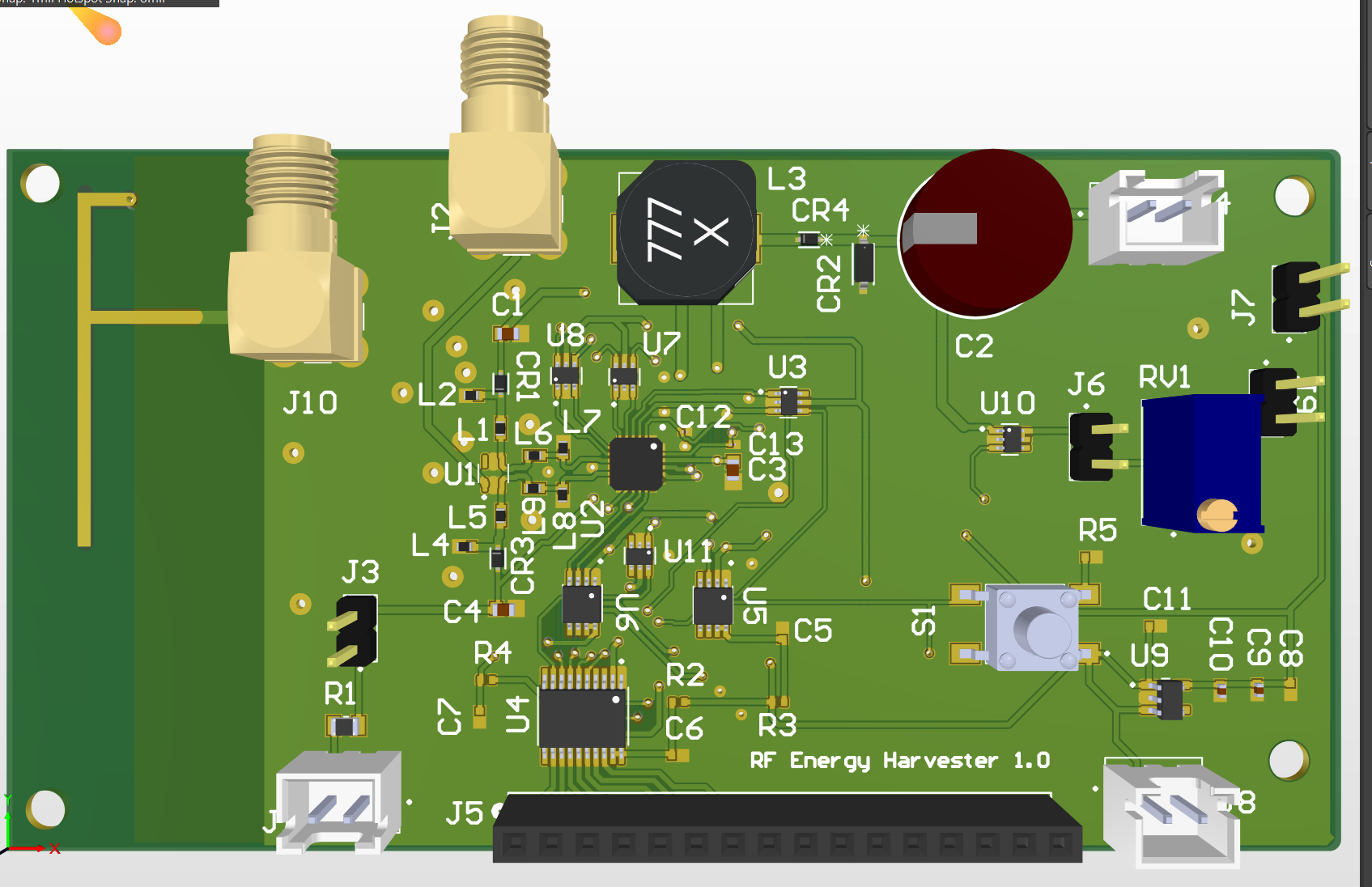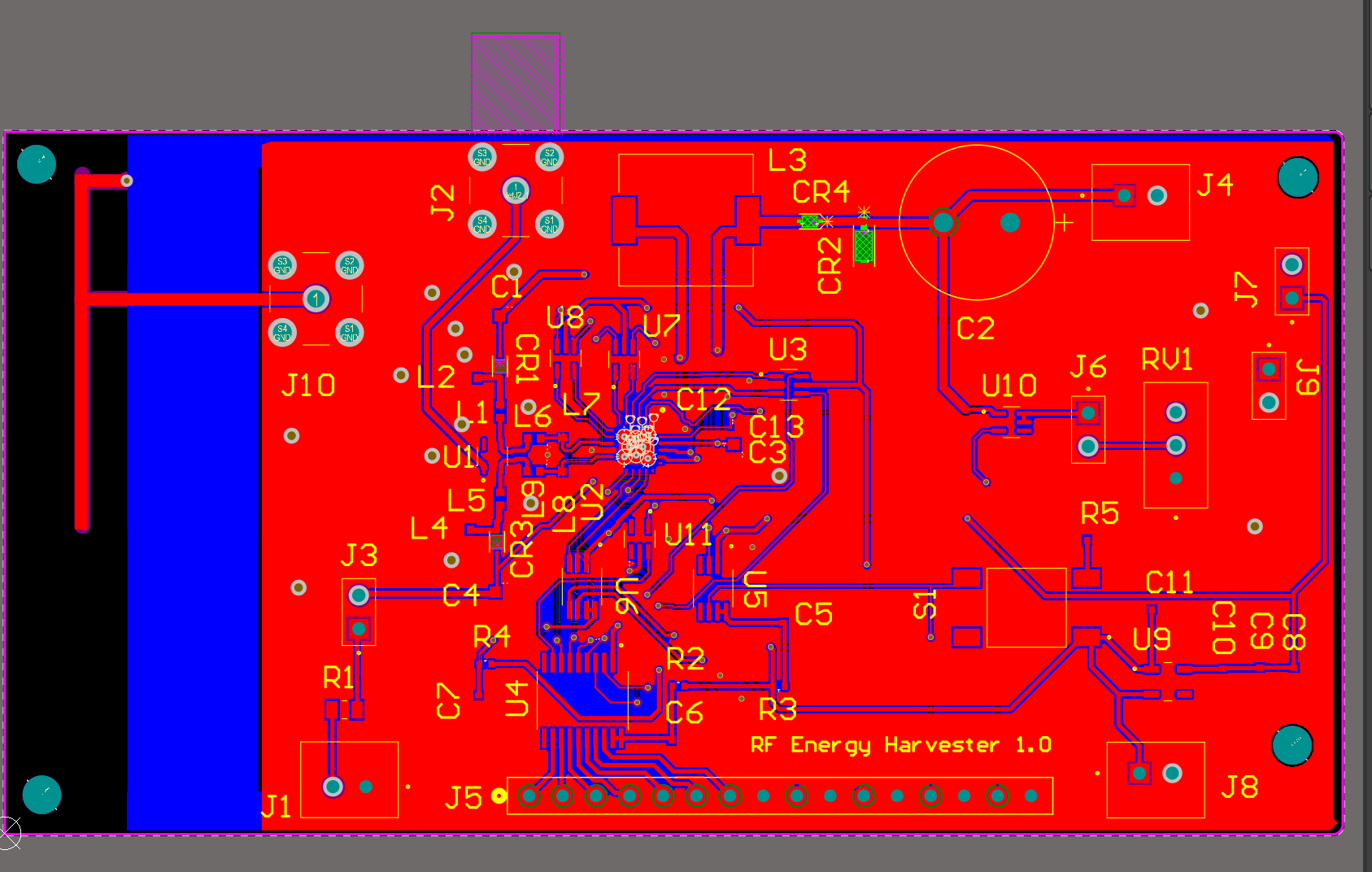RF-Powered Sensor Platform for Intelligent Groceries Transportation Monitoring
This project aims to develop an advanced RF energy harvesting (EH) receiver chip specifically designed to power embedded sensors for monitoring the condition of groceries during transportation. The receiver chip captures wireless energy transmitted from phased array antennas and converts it into electrical power that is used to operate onboard sensors, which continuously monitor critical parameters such as temperature and humidity inside delivery trucks. In addition to powering these sensors, the chip also generates sufficient energy for a transmitter circuit, enabling real-time wireless transmission of the collected sensor data to a main control panel installed on the truck.
The first-generation chip has already been successfully fabricated using the TSMC 40nm CMOS process. In this version, energy management and data transmission algorithms are executed externally on an FPGA. The attached figure presents the micrograph of the fabricated chip.
Building upon the success of the initial prototype, the next phase of the project will focus on creating a fully integrated system-on-chip (SoC) solution with several significant enhancements:
- On-Chip RF Modulator and Power Amplifier: To enable more efficient wireless transmission of sensor data directly from the chip. This feature is currently under design.
- Integrated Arm Core and/or Neural Processing Unit (NPU): To provide on-chip digital signal processing (DSP) and machine learning (ML) capabilities. These enhancements will allow the chip to intelligently optimize energy harvesting, manage power usage, and determine the optimal timing for data transmission, leveraging a newly developed algorithm for maximizing harvested power.
- Sensor Integration: While the main sensors (e.g., humidity, temperature, and pH) will remain off-chip, suitable devices from Texas Instruments (TI) have already been identified and validated to meet the project's requirements.
Overall, this work moves towards a highly efficient, autonomous, and intelligent monitoring system for perishable goods in transit, reducing spoilage and improving supply chain transparency.
Project Milestones
Do you want to view information on how to complete the work stage ""
or update the work stage for this project?
-
Target DateResult of Work
The algorithm works well as expected.
-
Post Silicon
Design FlowTarget DateCompleted DateDesigned and fabricated the test PCB to test the chip.
Result of Work

-
Milestone #3
Target Date -
Milestone #4
Target Date -
Milestone #5
Target Date -
Milestone #6
Target Date -
Milestone #7
Target Date -
Milestone #8
Target Date -
Milestone #9
Target Date -
Milestone #10
Target Date -
Milestone #11
Target Date -
Milestone #12
Target Date -
Milestone #13
Target Date

 Fidel Makatia
Fidel Makatia
Add new comment
To post a comment on this article, please log in to your account. New users can create an account.